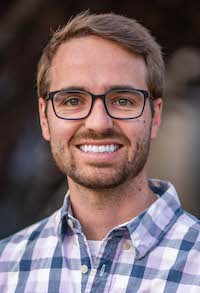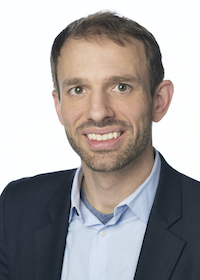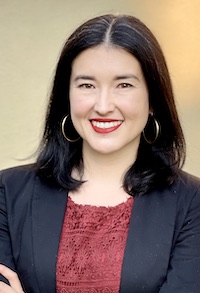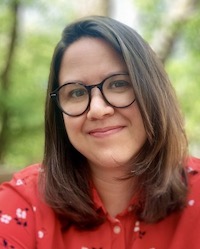
Brian Griffiths has made the study of the Amazon rainforest his life’s work.
In addition to earning a PhD from George Mason University in environmental science and policy in 2020, Griffiths spent a year in Peru on a Fulbright living in the rainforest alongside the indigenous Maijuna people.
“My research helps contribute to the Amazon rainforest being able to suck carbon out of the atmosphere,” Griffiths said. “I plan to use 3D mapping to look at the vegetation and soil structure throughout the region, and how that could be crucial to the fight against climate change.”
Griffiths’ other passion is teaching, and that is what the Postdoctoral Fellowship Program in Mason’s College of Humanities and Social Sciences (CHSS) has allowed him to do.
“I’m really committed to science communication,” he said.

Griffiths is actually part of a subset of the Postdoctoral Fellowship Program (PFP)—postdoctoral teaching fellows—created by CHSS Dean Ann L. Ardis that allows participants to continue their research and teach two classes per semester. Participants are on a 12-month contract.
The program goes beyond teaching, however. “The PFP is designed to provide enhanced professional development and research training support to postdoctoral researchers and teaching fellows,” said Jaime Lester, CHSS’s associate dean of faculty affairs and strategic initiatives. “The students are learning from each other, and work with a cadre of mentors to support their own career development plans.”
“These are top-notch researchers with so much talent and promise and expertise,” she added.
Ardis agreed. “It’s a true pathway to the professoriate programs,” she said.

“The postdoc program gives us all a chance to feel what it’s like to be on a traditional scholarship schedule, meaning that it combines teaching and research in ways that are combined for professors,” said Matthew Mangold, who researches the relationships between literature, psychology, and social change. “We are teaching two courses, so we don’t have overloads, and that gives us time to do research during the school year and over the summer.”
For Diana García Gómez, the most notable part of the postdoctoral program is how holistic it feels.
“It considers us as human beings, and there’s an aspect of mental health, work-life balance, activists as scholars,” she said. “The program allows a way for all these conversations to happen.”
A native of Bogota, Colombia, García-Gómez said she explores how children relate to everyday violence and how they construct a narrative of the Colombia armed conflict. In 2019, García-Gómez spent six months in Colombia learning, supporting, and engaging the community she observed.

This allowed García-Gómez to, as she said, “understand the impact that constantly remembering protracted violence has in the group of youth I spent my time with.”
While research is important to Jaimie Gunderson, the postdoctoral teaching fellowship allows her to broaden her skillsets. With a PhD in religions of the ancient Mediterranean from the University of Texas, her goal is to stay in academia after her fellowship and complete a book proposal.
No surprise, then, she said an important part of her fellowship has been its focus on publishing.
“It helped me think about how I can market myself more broadly in academia,” Gunderson said. “It’s been really nice to make connections, focus on professionalization, have a cohort to meet with regularly, sounding boards for research and teaching advice.”
But the best part of working at Mason, she said, is the students.
“The student population at Mason is so diverse that it’s unlike any other place I’ve been,” Gunderson said. “To walk into a classroom and just have the plurality of voices and experiences has been rewarding to me.”
“Mason is fantastic because it’s a growing research institution, and that’s not common,” Mangold said of Mason’s recognition by Carnegie as a Tier-1 research institution. “Many institutions of higher learning are shrinking, and Mason is growing.”
As is Mangold’s expertise.
“I just feel I’m at peak performance for teaching and research,” he said. “My next step will hopefully be a permanent appointment on a tenure track.”
